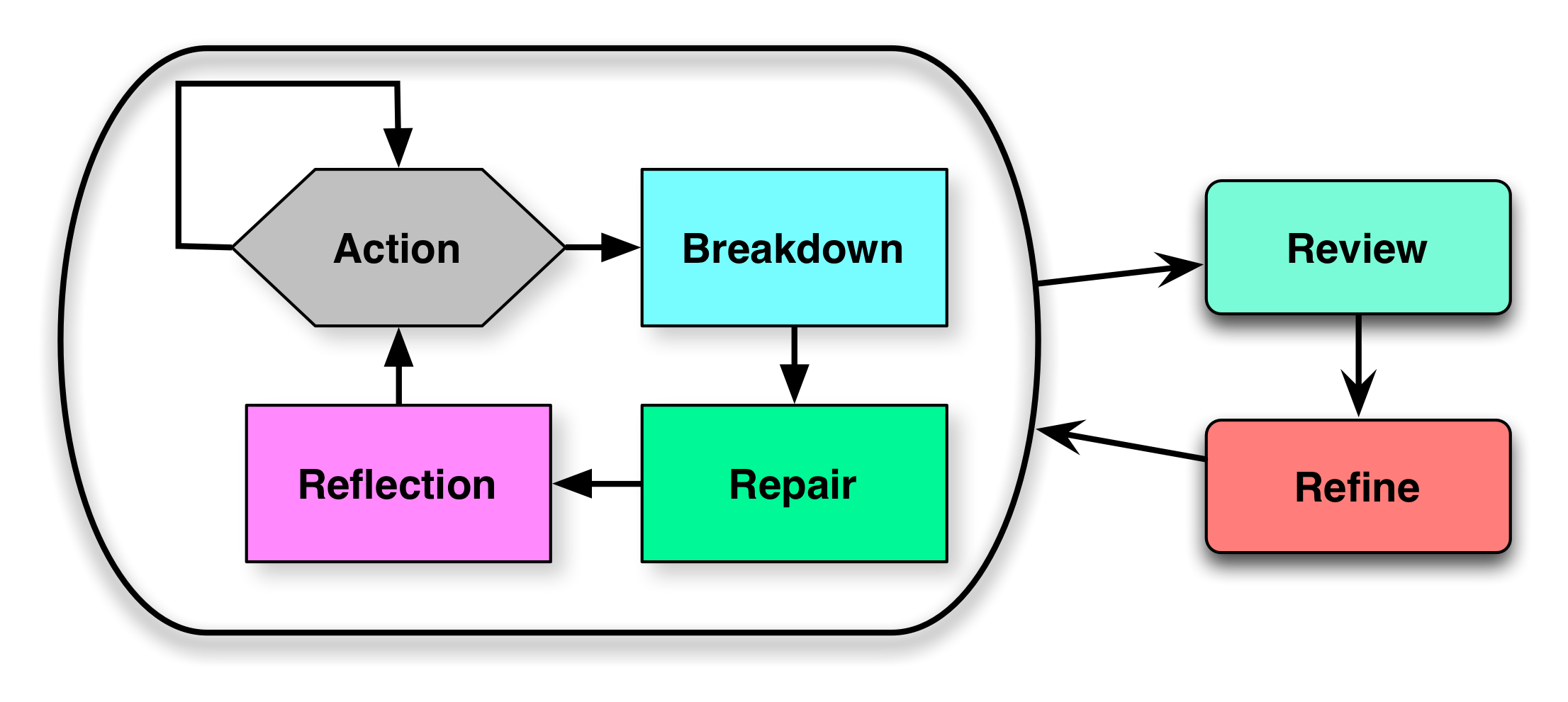I was asked by a colleague to answer some questions for a project on how to learn. I naturally decided to answer in a blog post ;).
Q1. In your working life, how have you learnt effectively from experience, please provide an example if possible? (e.g. how have you used intentional practice, learnt from failure, learnt from ambitious projects and/or used reflection)
I try to look at feedback and reflect, specifically deciding how I will do things differently next time. So, I regularly read the feedback comments I get on my latest presentations (it really helps when that’s timely, hours or at most days, not weeks). While obviously reveling in the positive ones, I look for constructive feedback that I can try to improve upon. For example, the very first time I ran a workshop for the eLearning Guild, while most liked it two people asked for their money back. (I was really upset.) However, I looked at their rationale, and realized I’d made specific mistakes. The Guild was somewhat reluctant to try me again, but I documented the exact two things that were wrong, and gave them my specific changes and why those change would address the problems. I’ve been doing workshops at Guild events for around a decade now! (E.g. my Revolution/elearning strategy workshop at the upcoming DevLearn).
Q2. In your working life, how have you learnt effectively from people, please provide an example if possible? (e.g. how have you learnt from project teams, mentors, coaches and/or broader social networks)
I learn from folks in a variety of ways, but the key is asking questions. I’ve asked questions and gotten answers from my social networks. I’ve been very fortunate to have valuable mentors throughout my career. I’ve worked for smart and good people, and they’ve been willing to share. Most have given me some stretch assignments that required me to work in my ZoPD, and then feedback to learn from the outcomes. And I would ask them along the way. I’ve also learned from collaborative assignments, working and learning together. But mostly I’ve learned from my close colleagues. For example, with my ITA colleagues, we have a chat channel open, and we’re regularly pointing things out, asking each other questions, and in general staying linked both professionally and personally.
Q3. In your working life, how have you learnt effectively from courses, research or investigation, please provide an example if possible? (e.g. how have you learnt from reading on the web, reading books or attending courses)
I read, a lot. I’m not only reading things pointed to via my social network (both professional and personal interests), but I use the library. I seldom take courses any more, both having developed my own learning skills and from plain hubris, but when I do I try to follow the instructions, extend the implications to my own experience, and see if I think I can apply them or ask about the barriers I am anticipating. But I really try to alternate my pleasure reading with reading that advances my understanding (here are a Deeper eLearning reading list and a Revolution reading list). I write book reviews as a way to reflect on my learning (e.g. an article that points to two), but even for myself I try to take notes and look for the implications.
Q4. What‘s your top advice for someone who wishes to develop faster and learn complex skills in modern workplaces?
Stay curious, my friends. Seriously, as a general mindset I think that a continuing interest in what’s going on is essential. I strongly believe in personal responsibility for learning, and that means not only doing it, but reflecting. Meta-Learning, or Learning to Learn, is a crucial focus and area to track. Then, several specific steps. I like my colleague Harold Jarche’s Seek-Sense-Share model for Personal Knowledge Mastery. I think experimenting with different media, and working out how to manage the flow of information is critical. Given that learning is action and reflection, I think experimentation and reflection are a crucial part of self-learning. Experiment with different ways to represent your understanding: write, diagram, make an audio or video file. Look for links. And then share your reflections on your learning, and your learning to learn. Be concrete about what you think your learning processes are, and look at how others learn.
Ok, so that’s how I learn, how about you?
Huge thanks for your insightful response Clark. It’s great to read of someone still using libraries! I appreciated your thoughts and will most likely reference some of them in my work (Ill seek your permission over specific quotes as it draws closer)